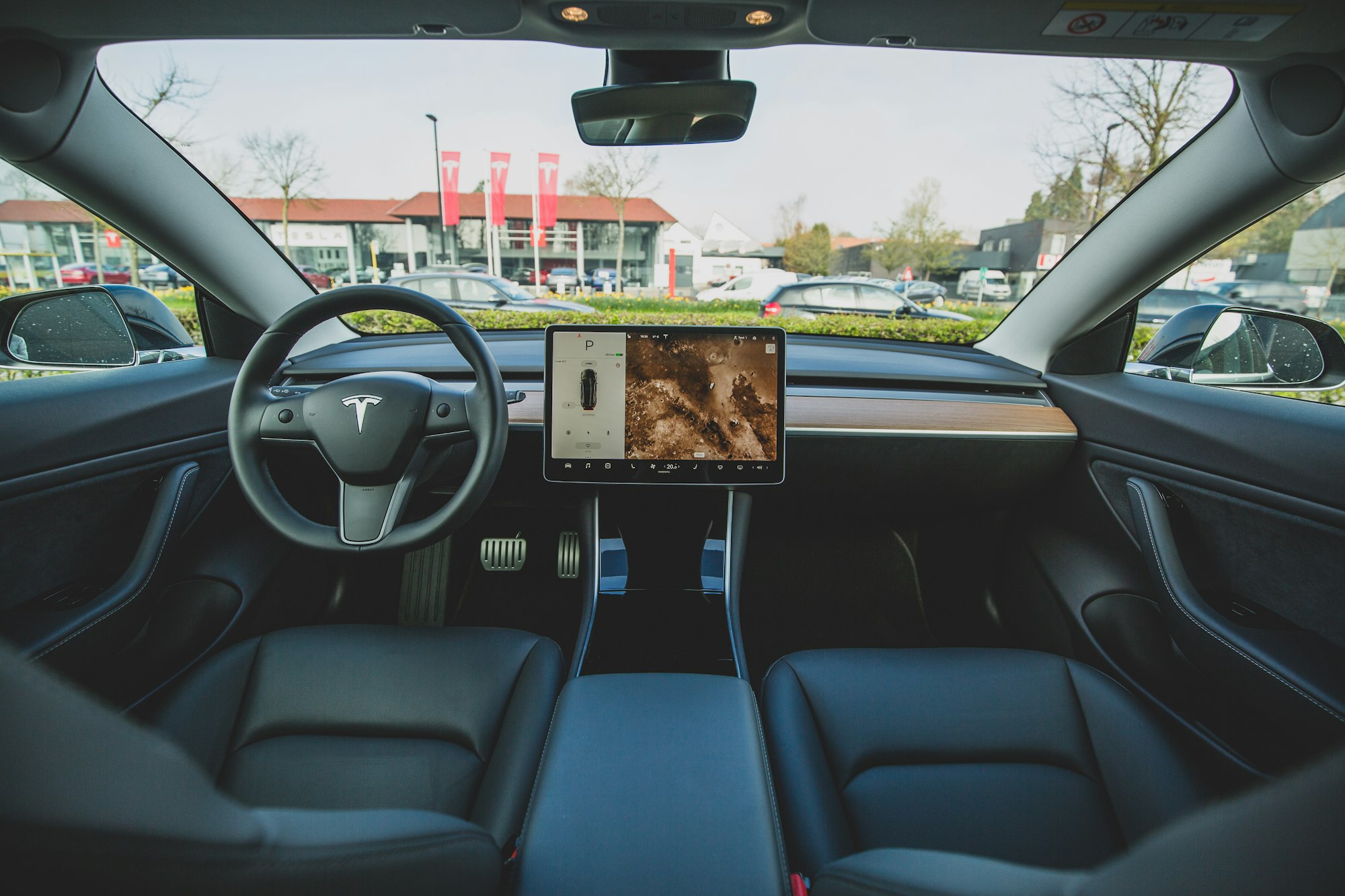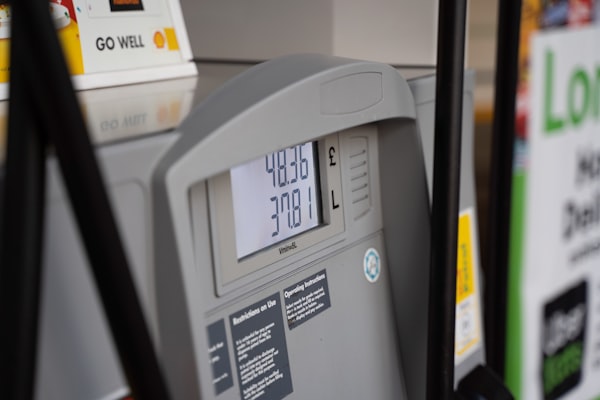Want to know how you can save £35,000 on car ownership? Are you an owner-manager of a limited company? Read on!
The short version
If you own and manage your own limited company and you're in the market for a car, you can save thousands by going electric.
Here's why:
- If you purchase or lease a car with your own money those funds are after tax. Chances are you've paid Income Tax in some form to get that money.
- If you purchase or lease a car with company funds then they are before tax. From your perspective, there's no Income Tax to pay.
Here's an example:
If you want to spend £850 per month on a car lease, and you are an Additional Rate taxpayer earning dividends from your company, you'll need to draw £1,402 per month from your company. The difference - a whopping £552 per month - is duly paid to HMRC as Income Tax.
But wait! There's more!
Company cars are company assets, so the costs of running them are company expenses. Insurance, maintenance, servicing and even the interest costs of any finance deal are all legitimate company costs. If the car is electric, the cost of electricity can even be thrown in (subject to some debate, discussed below).
That's extra, signifciant savings on top of the numbers above.
And, the cherry on the top - if you are a VAT registered company and you rent the car, you'll be able to recover 50% of the VAT and get a Corporation Tax deduction for the other 50%.
So far, so good. But why does the car have to be electric?
Well, if you have a company car you have something called a 'Benefit-In-Kind'. We like to call them BIKs to confuse people.
The value of your BIK is subject to Income Tax (as well as Employer's National Insurance, a bummer if you're both employer and employee).
And here's the rub - the BIK rates are punitive on all but electric cars. In short, the BIK rates on combustion cars (and even some hybrids) are high enough to dent or even destroy the savings set out above.
The BIK rates on electric cars in comparison are superb and they make the whole exercise more than worthwhile.
The detail
Benefits in kind
Let's start with the BIK, because that is the key reason why electric company cars make so much sense.
BIK value is calculated as a percentage of the list price of the car (plus a few complications). Broadly, the % used depends on the carbon-dioxide emissions of the car. The higher the emissions, the higher the %, except for hybrid cars where the % may also be based on the 'electric-only' range of the car.
Our first scenario: you're swayed by the sultry curves and striking looks of a Tesla Model Y Long Range, list price £62,400. It's fully electric, so the BIK rate is currently 2%.
Our second scenario: you're equally swayed by the raw power (and thirst for fuel) of an Audi Q5 2l TFSI, list price also £62,400. It's CO2 emissions are a climate-warming 191 g/km, so the BIK % is currently 37%.
You've probably guessed that higher = bad, but why? Well, the % determines the value so £1,248 BIK for the Tesla, £23,088 for the Audi.
That BIK is then subject to Income Tax for the employee. And that's the kicker. For an Additonal Rate taxpayer, that is £562 of Income Tax for the Tesla, but a whopping £10,390 for the Audi.
An example transaction
With that in mind, let's run through an example.
- You are a VAT registered business,
- You decide to lease a Tesla Model Y Long Range for 4 years with a Contract Hire agreement from April 2023,
- You pay a deposit of £5,733 excl. VAT,
- Then a monthly rental of £708 excl. VAT,
- The final rental is £24,300 excl. VAT,
- Your Corporation Tax rate is 25%,
- The list price of the car is £52,000 excl. VAT.
What does this look like in practice?
- The full value of the rental payments are deductible for Corporation Tax, plus you get 50% of the VAT back. On repayments of £708 the VAT is £142 so 50% is £71.
You get a £71 deduction in your rental payments each month, then a Corporation Tax saving on the remainder (£779) at 25%.
The total Corporation Tax saving is £9,348 over 48 months, and the total VAT saving is £3,400. - You'll also need to pay Income Tax on the BIK. The BIK is calculated as follows:
2023/24 - 2% * £62,400 = £1,248
2024/25 - 2% * £62,400 = £1,248
2025/26 - 3% * £62,400 = £1,872
2026/27 - 4% * £62,400 = £2,496
Total = £6,864
It is most sensible to 'make good' on this cost, i.e. pay the amount back to the company. To do this as an Additional Rate taxpayer with dividends, it will cost £2,701 in Income Tax (£6,864 * 39.35%). The company also needs to pay Corporation Tax on the amounts made good, coming to £1,716 at 25%. The total additional cost driven by the BIK is £4,417.
So the total costs of ownership work out as follows:
- £40,800 in payments over 4 years, being £850 / month * 48 months
- Less £9,348 Corporation Tax saving on those payments
- Less £3,408 VAT saving on those payments
- Plus £4,417 costs relating to BIK.
That comes to £32,461 per year, or approximately £676 per month across the period of ownership.
To rent this car yourself, the headline cost would be £850 per month, so you've already saved £8,352 by making it a company car over the period of ownership.
But we don't stop there, because to pay £850 per month as an individual, you need to draw say £1,402 per month as dividends before tax as an Additional Rate taxpayer. By (legitimately) avoiding Income Tax on the funds used to pay for the car, you're saving an extra £552 per month or £26,496 over the period of ownership.
And, finally, there's extra savings to be had because you'll get VAT and Corporation Tax relief on the legitimate costs of running the car. The company can buy insurance, pay for maintenance, pay for consumables (e.g. tyres),
But what about a petrol car?
We mentioned earlier an Audi Q5 2l TFSI. You may also recall the BIK % was 37%. The BIK value would work out as follows:
2023/24 - 37% * £62,400 = £23,088
2024/25 - 37% * £62,400 = £23,088
2025/26 - 37% * £62,400 = £23,088
2026/27 - 37% * £62,400 = £23,088
Total = £92,352
An Additional Rate Taxpayer would need to pay £36,341 in Income Tax over the life of the car based on that BIK. The company would also need to pay Corporation Tax of £23,088 for a total cost of £59,429. That's an increase of £55,012 in equivalent costs of the Tesla, which more than wipes out the £34,800 savings compared to buying the car yourself.
And what about a hybrid?
An equivalent hybrid might be the Audi Q5 50 TFSI e plug-in hybrid. Example BIK rates and costs may be:
2023/24 - 12% * £62,400 = £7,488
2024/25 - 12% * £62,400 = £7,488
2025/26 - 13% * £62,400 = £8,112
2026/27 - 14% * £62,400 = £8,736
Total = £31,824
An Additional Rate Taxpayer would need to pay £12,523 in Income Tax, and the company would pay £7,956 in Corporation Tax for a total cost of £20,479. That's an increase of £16,062 on the equivalent costs of the Tesla - so about halves the savings compared to buying the car yourself.
In short, a hybrid company car would still be attractive in this scenario with decent savings available, but they are but a fraction of the savings available on a fully electric car.
Common questions
The above example isn't a simplification - it's a real life example. It does make a few assumptions: you might not be an Additional Rate taxpayer (the highest), and your company may not need to pay Corporation Tax at 25%. But it is a fair reflection.
Nevertheless, this can be a complex area, and here's a few questions we often get:
- Aren't the BIK rates for electric cars going up?
Yes they are, up to 4% by 2026/27 (6 April 2026 to 5 April 2027) based on current announcements. The government tend to trail BIK rates many years in advance, accepting that people often enter lengthy committments on cars and a big increase mid-agreement would be a nasty shock. These rates still pale in comparison to the equivalent rates on combustion engine cars, and are factored into our numbers above. - I've heard there is a 100% allowance for electric cars. Why haven't you mentioned that?
There is indeed. If you purchase an electric vehicle (strictly a zero emission vehicle) you can claim 100% of the cost as a deduction for Corporation Tax in the year you buy it. So far, so great.
But there's two caveats: (a) by purchasing the car you lose the VAT rebate - you can't recover any VAT on a car you purchase unless you're a taxi company, driving instructor or in other specific scenarios and (b) when you sell or hand the car back, the value of the car at that time is taxed so over the period of ownership, you only get a deduction on the value of the car you have paid.
If you are a VAT registered business, it may be cheaper overall to rent the car and forego the 100% deduction.
If you aren't VAT registered or cashflow is really important, then buying the car and taking the 100% deduction (albeit with a partial reversal when the car is disposed of) may be more sensible. - My mate in the pub told me the company cannot reimburse the costs of charging the car, but my adult son said I can. Who is right?
Wow, you have some boring conversations. But it is a fair question. If you're minded to believe HMRC, your fellow pubgoer is correct - apart from a fixed rate for business mileage, you need to fork out for the costs of charging your car.
But, the Institute of Chartered Accountants in England & Wales (and others) see it differently and argue the company can pay for charging (on the basis that electricity is not fuel as defined in legislation). You'll need to decide who you agree with, most likely alongside your accountant, as well as consider whether you're up for a fight with HMRC if they come knocking. - This is all well and good, but as a small business I've been declined for company car finance - I can only get finance as an individual.
This is often the case with headline finance providers (e.g. Black Horse Finance, one of Tesla's partners). But approach a decent finance broker and they'll likely negotiate a decent deal for you, especially if you're willing to support it with (e.g.) a personal guarantee.
If your company is reasonable and you have a good credit history personally, company car finance should be within reach, it just requires a creative approach.
Next steps
As always our standing guidance is to seek the advice of a professional, qualified accountant to navigate your tax liabilities. You should definitely do this before entering a long-term financial commitment, such as a new car.
If you need support, Berg & Williams are always very happy to help.









Member discussion